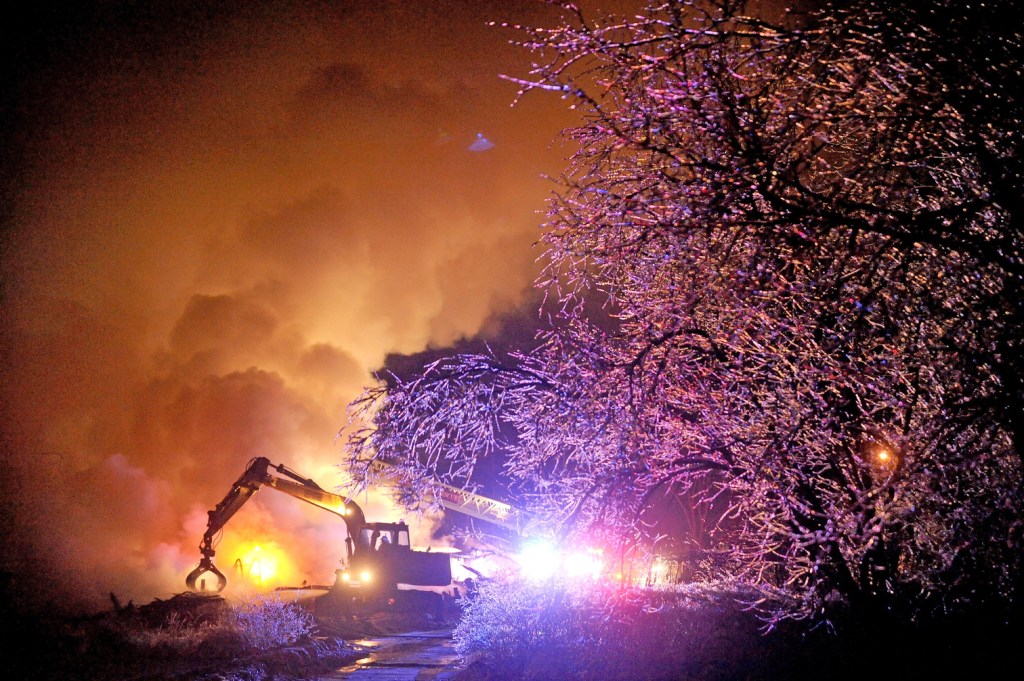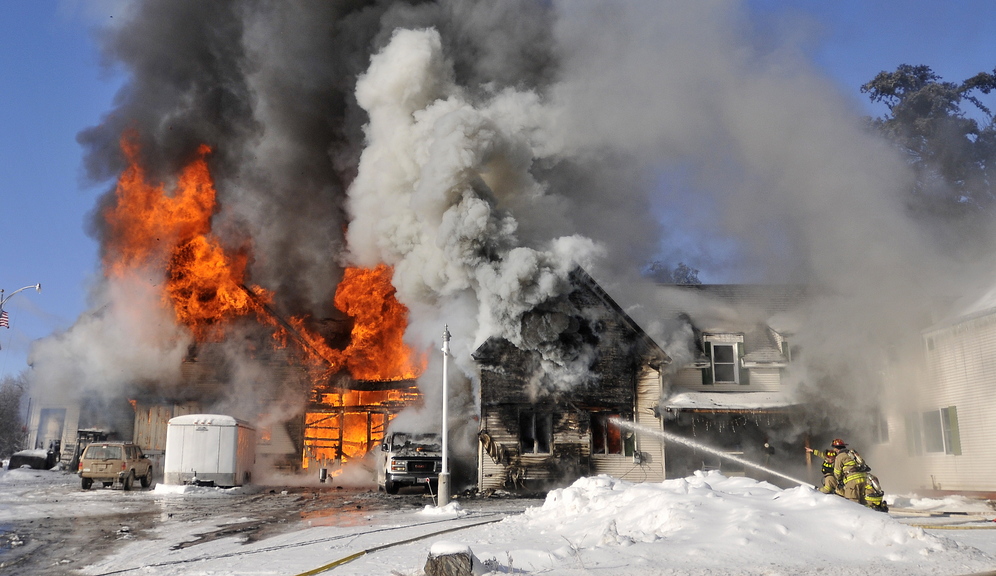WATERVILLE — The fire that destroyed a flooring company’s storage building on Drummond Avenue on Christmas could have been avoided if wood ashes that ignited the building had been disposed of properly, according to the Waterville Fire Department.
Fire officials say complacency about heating homes this time of year is a common problem that leads to an increase in fires.
Wood stove ashes left in a garage attached to Robert Grenier’s home ignited the fire, which heavily damaged the house and destroyed the garage Wednesday afternoon, fire officials said. The building housed storage supplies for his business, Grenier’s Classic Flooring.
Grenier, who could not be reached for comment Thursday, suffered second-degree burns on his right hand and was treated at the scene. The building and everything in it — including carpeting, tiling, a van, a trailer and a forklift — were all destroyed. Four other people were in the house preparing Christmas dinner when the fire occurred, but made it out safely, according to the fire department.
The ashes had been stored in a plastic bin and inside the garage near other flammable objects, which are two wrong ways of disposing of ashes, according to Capt. Michael Michaud for Waterville Fire Department.
“When you clean out your wood stove or fireplace, put the ashes in a metal bucket and place it outside and at least 20 feet away from anything combustible,” Michaud said. “Hot coals and embers can either ignite the plastic bucket or melt through them and ignite the surrounding objects.”
There is a rise in ash fires such as those on Drummond Avenue during the colder months, when more of a burden is put on heating homes.
“Across the state you’ll see a rise in these types of fires ever year — people get complacent and make that mistake,” Michaud said. “Most people in general are aware of the hazard of putting ashes in something other than a metal can and putting them on your back porch or garage. But people get complacent sometimes, and the cold weather affects it. People won’t want to walk outside when it’s snowing or raining and will just put the ashes in the garage until they leave for the supermarket.”
Between 2008 and 2010, more than 38 percent of heating fires happened during December or January, according to the U.S. Fire Administration. Over that time, nearly 40 percent of residential heating fires were caused by the misuse of the material or product, according to the USFA’s 2012 Heating Fires in Residential Buildings report, and of the first item ignited in those fires, nearly 43 percent of the time it was the structure of the building.
The Christmas Day fire’s smoke plume was highly visible and drew an audience, which combined with icy conditions made battling the fire difficult and created a treacherous situation for both responders and onlookers, Michaud said.
“When the fire is happening, it’s important for people to stay away,” Michaud said. “I know it’s a big draw, especially a fire as big as that one was, but it’s important people stay back so we can get the equipment that we need.”
Jesse Scardina — 861-9239jscardina@centralmaine.comTwitter: @jessescardina
Send questions/comments to the editors.




Success. Please wait for the page to reload. If the page does not reload within 5 seconds, please refresh the page.
Enter your email and password to access comments.
Hi, to comment on stories you must . This profile is in addition to your subscription and website login.
Already have a commenting profile? .
Invalid username/password.
Please check your email to confirm and complete your registration.
Only subscribers are eligible to post comments. Please subscribe or login first for digital access. Here’s why.
Use the form below to reset your password. When you've submitted your account email, we will send an email with a reset code.